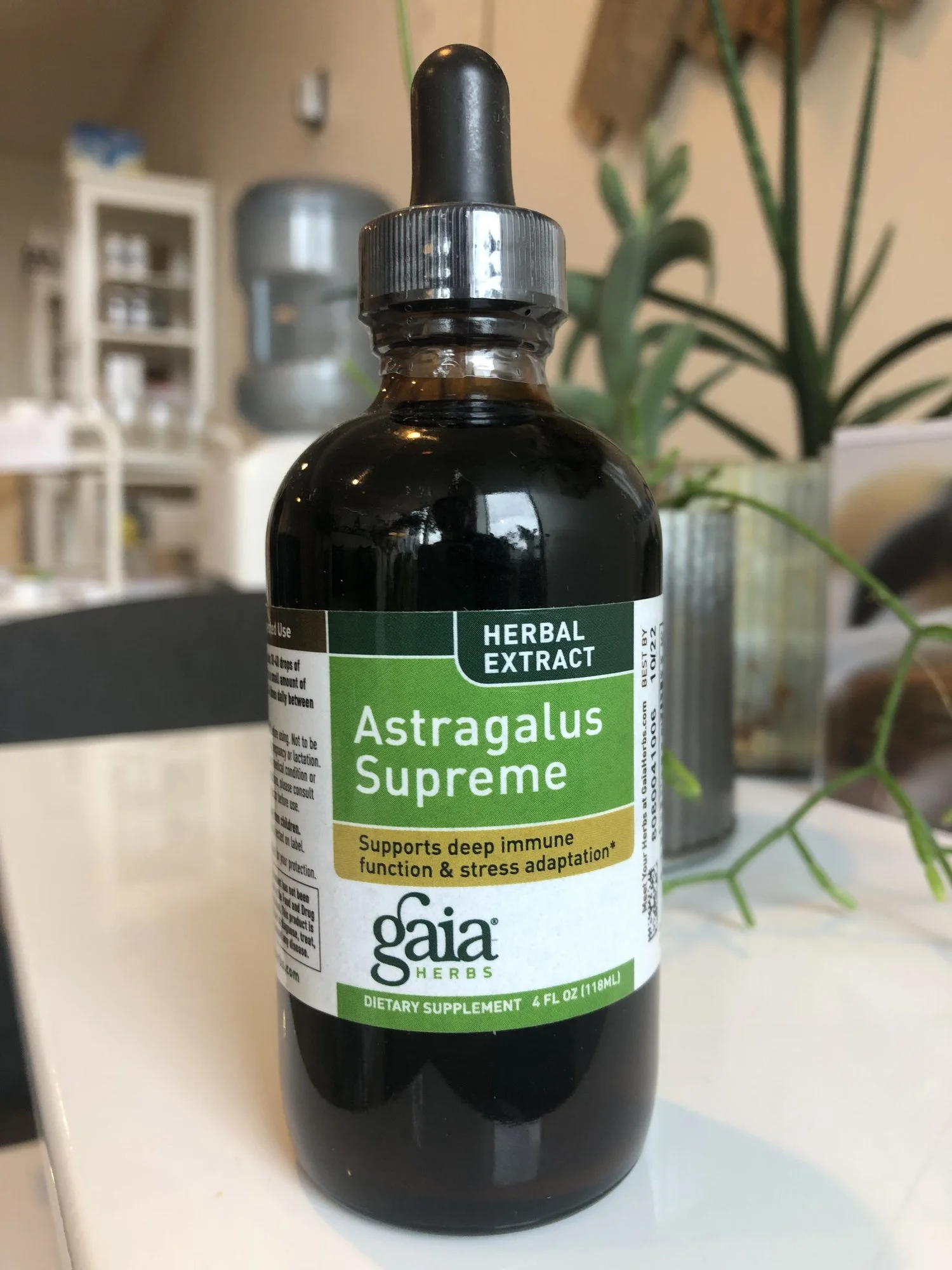Before I went to school to become a Chinese Medicine Practitioner, one of my coworkers at the Women’s Health Clinic in Vermont told me they were taking astragalus for immune support. This was the first time someone I knew told me about taking Chinese herbs. I had no idea then how important this herb would be to me and my future patients. Astragalus, or Huang Qi, is a tonic herb that is useful for a variety of conditions characterized by Qi deficiency and sinking Qi:
Fatigue, foggy thinking
Allergies, including skin conditions and food sensitivities
Frequent infections, lowered immunity
Diarrhea, loose stools
Heavy menses, or depleted blood
Poor appetite, weak digestion
The National Institute of health reports “Pharmacological research indicates that the extract component of Astragalus membranaceus can increase telomerase activity, and has antioxidant, anti-inflammatory, immunoregulatory, anticancer, hypolipidemic, antihyperglycemic, hepatoprotective, expectorant, and diuretic effects.” Those are some pretty compelling benefits. Astragalus is the epitome of a preventative herb, with its immune-enhancing, anti-aging effects. Patients report things like better work-out performance and muscle recovery. It is a key component of the classic Chinese herbal formula for the prevention of allergies, and it is for this use that I prescribe it most often. One key note about astragalus, though, is that it is best used preventatively, particularly for immunity. Once there is an infection or the respiratory tract is inflamed from allergies, a different strategy is often warranted. Keep astragalus in mind for next year! I love practicing a medicine that is so adept at enhancing wellness, not just the treatment of disease.
In health,
Amber Hincks, LAc FABORM

